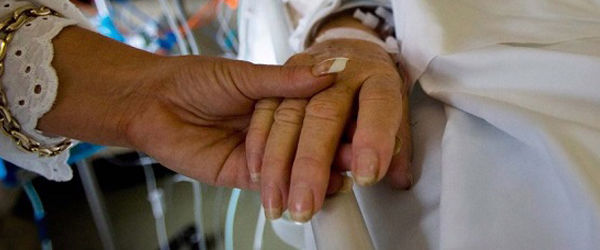Catholic leaders in Europe hailed the decision to give a Nobel Prize to two pioneers of adult stem-cell research as a triumph for ethics.A statement from the Commission of the Bishops' Conferences of the European Community, known as COMECE, said that awarding the Nobel Prize in physiology or medicine to John B. Gurdon and Shinya Yamanaka represented an "important milestone" in recognizing the superior potential of adult stem-cell research over destructive experimentation on human embryonic stem cells.The Anscombe Bioethics Centre, an institute serving the Catholic Church in the United Kingdom and Ireland, also described the award as an "achievement of great ethical significance.""This technique offers hope of progress in stem-cell research without relying on the unethical destruction of human embryos," said David Jones, director of the Anscombe center in Oxford, England."The past attempts to clone human embryos and the bizarre experiments to create admixed human-nonhuman embryos have delivered nothing," he said."In contrast, the transformation of adult cells into stem cells is making great progress," he continued. "This is science at its best: both beautiful and ethical."The Nobel committee said England's Gurdon and Yamanaka of Japan had "revolutionized" science through their work."These discoveries have also provided new tools for scientists around the world and led to remarkable progress in many areas of medicine," the committee said.Both scientists were involved in research into changing mature cells into stem cells, which have the potential to become specialist organ cells and be harvested in the potential treatment of a variety of diseases.According to a report from the Reuters news agency, stem cells created from adult tissue are known as "induced pluripotency stem cells,” or iPS cells. Because patients may one day be treated with stem cells from their own tissue, their bodies might be less likely to reject them.Many hope such work may prepare the ground for therapies to repair heart tissue after heart attacks, for instance, or to reverse the progress of Alzheimer's and Parkinson's diseases.Gurdon distinguished himself by using an intestinal sample to clone frogs, and Yamanaka pioneered a technique of reprogramming mature cells to become "pluripotent" by altering their DNA.In an Oct. 8 statement, COMECE said the award should encourage European Union institutions to switch funding from "ethically problematic and scientifically and economically less-promising" embryonic stem-cell research to non-embryonic stem cell research, which held out greater potential."This is an important milestone in recognizing the key role that non-embryonic stem cells play in the development of new medical therapies as alternatives to human embryonic stem cells," the statement said."There have been continuing scientific advances in fields of research involving alternative stem cells ... (that) present better prospects for clinical applications; or have indeed already demonstrated widespread clinical results and do not raise any special ethical problems," it said."Today's Nobel Prize rewards such efforts to discover alternatives," the statement added.The U.S. Conference of Catholic Bishops has noted previously that the Church supports ethically responsible stem cell research, while opposing any research that exploits or destroys human embryos.“Because the Church opposes deliberately destroying innocent human life at any stage, for research or any other purpose, it opposes embryonic stem cell research as currently conducted,” the USCCB says on its website, www.usccb.org/issues-and-action/human-life-and-dignity/ (see Stem Cell Research).“However, when scientists proposed avenues for possibly obtaining embryonic stem cells or their pluripotent equivalent without creating or harming embryos, Catholic leaders were among the first to welcome this idea. “The Catholic Church has long supported research using stem cells from adult tissue and umbilical cord blood, which poses no moral problem. Catholic institutions at times have taken the lead in promoting such constructive research, which is already providing cures and treatments for suffering patients.”—CNS{gallery width=100 height=100}gallery/2012/1012/nobel/{/gallery}

